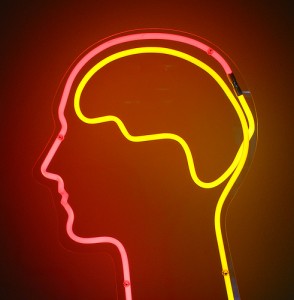Diabetics Should Also Watch Out For Strokes
 Mr. Delgado had no idea that his recent diabetes diagnosis puts him at an increased risk for a stroke. But, as a matter of fact, stroke is the third leading cause of death in the U.S. And the number one cause of disability. And, it’s even worse in the Latino community, where one in 10 Latinos over the age of 65 has suffered a stroke.
Mr. Delgado had no idea that his recent diabetes diagnosis puts him at an increased risk for a stroke. But, as a matter of fact, stroke is the third leading cause of death in the U.S. And the number one cause of disability. And, it’s even worse in the Latino community, where one in 10 Latinos over the age of 65 has suffered a stroke.
What is really scary is that the incidence of stroke in Latinos is expected to rise 350% in the next 40 years!
Unfortunately, Latinos suffer more suffer more from strokes and have more strokes than non-Latino whites. High blood pressure (hypertension) is the number one cause of stroke — two out of three adults with diabetes have high blood pressure. The good news is half of all strokes could be prevented if patients controlled their blood pressure, and many others could be prevented by controlling other risk factors like smoking and sedentary lifestyles.
This sounds like an easy task, but studies report that no more than half the people with high blood pressure have it under control. The National Stroke Association recommends that you get your blood pressure tested at least once a year; more if you have a family history of high blood pressure, have had a heart attack, diabetes, or a weight problem.
To survive a stroke, know its symptoms. You may have numbness or weakness in the face, arm, or leg especially on one side of the body, confusion or trouble speaking, trouble seeing in one or both eyes, trouble walking, or a severe headache of unknown cause.
If you suspect someone of having a stroke, there’s a great way to remember what to do: act FAST.
Face – Ask the person to smile. Does one side of the face drop?
Arm – Ask the person to raise both arms. Does one arm drift downward?
Speech – Ask the person to repeat a simple sentence. Does their speech sound slurred or strange?
Time – act quickly. Time is not on your side, you only have 3 hours to prevent brain cells from dying.
If you believe you’re having a stroke, you must get care immediately! Brain cells die during a stroke and they never come back! Strokes occur when the brain is deprived of blood due to a blockage of a blood vessel or a blood vessel leaks. Their onset is usually sudden and can happen to anyone at any age. The brain damage from a stroke can sometimes be halted by medications that dissolve clots blocking blood flow to the brain or surgery to repair leaky blood vessels. Minutes count and therapy is successful only if you get to the hospital within 3 hours of onset of symptoms.
To put the urgency into perspective stroke is treated as if the patient was shot in the head.
Most hospitals cannot provide the care you need to diagnose and treat a stroke because it’s not a big revenue generator for most hospitals, thus, there’s no financial incentive to buy the expensive equipment or hire the expert personnel to treat patients with stroke. In an effort to bring stoke care to communities across the country, regional “stroke centers” have been established in selected hospitals. The Joint Commission has provided a list of “stroke centers” which have the equipment and the expertise to diagnose and treat strokes.
Two out of three people who have a stroke either die or are brain damaged. Don’t become a casualty of stroke. Manage your diabetes. Take all your medications to manage your blood pressure. If you suspect you or a loved one is having a stroke, call 911 immediately and ask the ambulance driver to take you to a stroke center. This is a matter of life or death.
[Photo By dierk schaefer]Jeff Kreisberg is a patient advocate, educator, scientist author of the book “Taking Control of Your Healthcare,” and, until his retirement, a professor at the University of Texas Health Science Center in San Antonio, Texas. Jeff also blogs regularly on health issues on his website, Taking Control of Your Healthcare. Follow him on Twitter: @kreisberg.
References:
http://www.stroke.org/site/PageServer?pagename=diabetes
http://latinopm.com/health-fitness/health/latinos-lag-in-stroke-detection-prevention-3976
http://query.nytimes.com/gst/fullpage.html?res=9C0CE3D71730F93BA15756C0A9619C8B63&pagewanted=1

